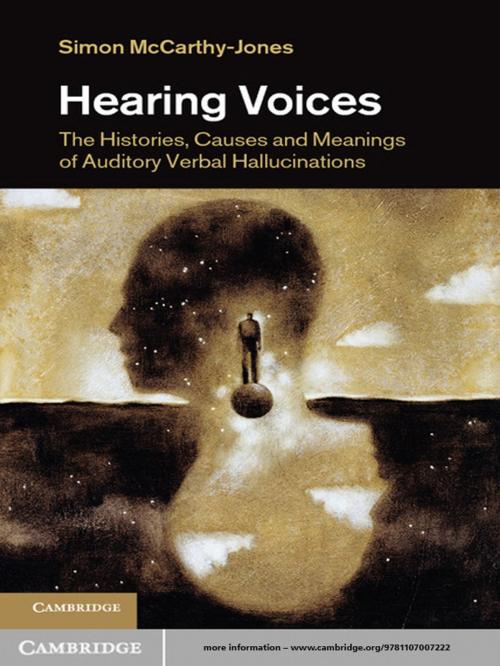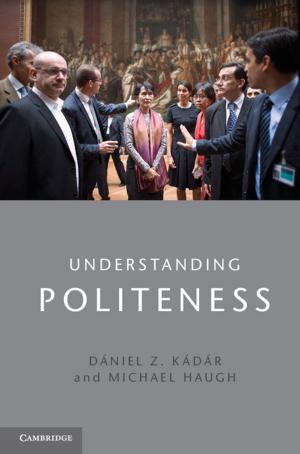Hearing Voices
The Histories, Causes and Meanings of Auditory Verbal Hallucinations
Nonfiction, Health & Well Being, Psychology, Clinical Psychology, Medical| Author: | Simon McCarthy-Jones | ISBN: | 9781139365840 |
| Publisher: | Cambridge University Press | Publication: | April 5, 2012 |
| Imprint: | Cambridge University Press | Language: | English |
| Author: | Simon McCarthy-Jones |
| ISBN: | 9781139365840 |
| Publisher: | Cambridge University Press |
| Publication: | April 5, 2012 |
| Imprint: | Cambridge University Press |
| Language: | English |
The meanings and causes of hearing voices that others cannot hear (auditory verbal hallucinations, in psychiatric parlance) have been debated for thousands of years. Voice-hearing has been both revered and condemned, understood as a symptom of disease as well as a source of otherworldly communication. Those hearing voices have been viewed as mystics, potential psychiatric patients or simply just people with unusual experiences, and have been beatified, esteemed or accepted, as well as drugged, burnt or gassed. This book travels from voice-hearing in the ancient world through to contemporary experience, examining how power, politics, gender, medicine and religion have shaped the meaning of hearing voices. Who hears voices today, what these voices are like and their potential impact are comprehensively examined. Cutting edge neuroscience is integrated with current psychological theories to consider what may cause voices and the future of research in voice-hearing is explored.
The meanings and causes of hearing voices that others cannot hear (auditory verbal hallucinations, in psychiatric parlance) have been debated for thousands of years. Voice-hearing has been both revered and condemned, understood as a symptom of disease as well as a source of otherworldly communication. Those hearing voices have been viewed as mystics, potential psychiatric patients or simply just people with unusual experiences, and have been beatified, esteemed or accepted, as well as drugged, burnt or gassed. This book travels from voice-hearing in the ancient world through to contemporary experience, examining how power, politics, gender, medicine and religion have shaped the meaning of hearing voices. Who hears voices today, what these voices are like and their potential impact are comprehensively examined. Cutting edge neuroscience is integrated with current psychological theories to consider what may cause voices and the future of research in voice-hearing is explored.















